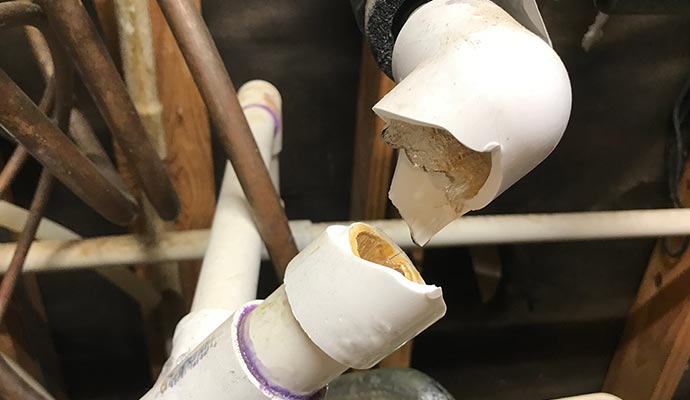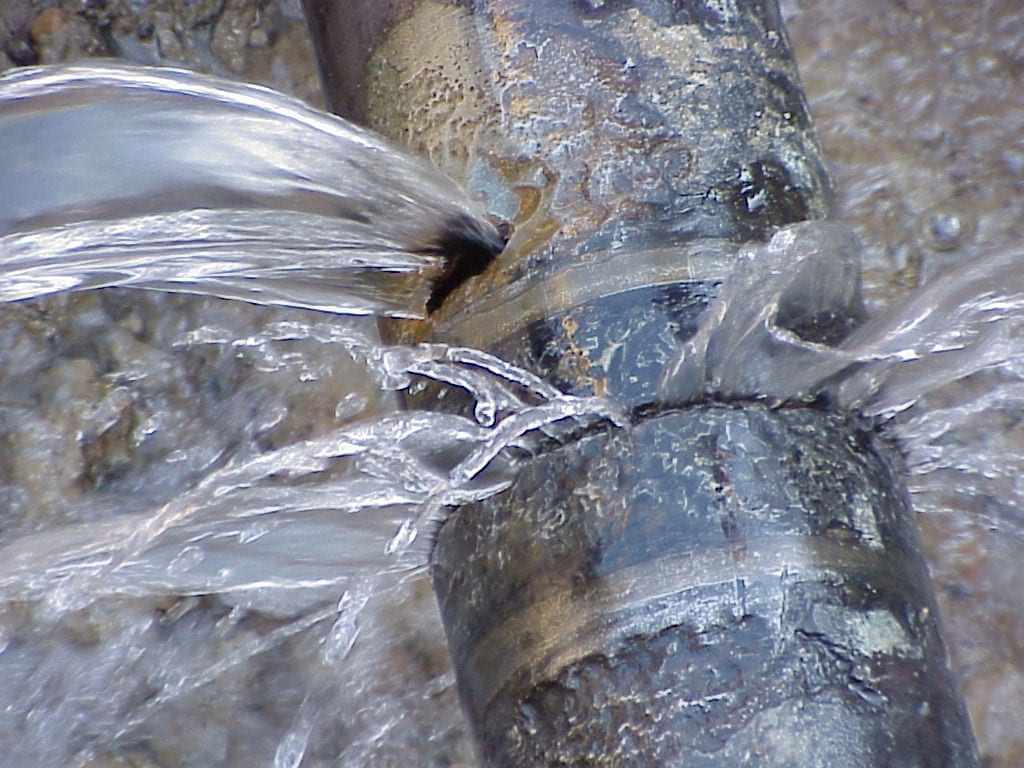Emergency Burst Pipe Services: Fast Response to Avoid Extensive Damage
Emergency Burst Pipe Services: Fast Response to Avoid Extensive Damage
Blog Article
Preventing Ruptured Piping: Important Tips to Protect Your Pipes
Avoiding ruptured pipelines is a vital worry for house owners, especially during chillier months when the danger of cold is enhanced. Executing tactical measures such as correct insulation, regular evaluations, and preserving regular interior temperature levels can dramatically reduce the probability of pipe failure.
Understand Pipeline Vulnerabilities
Recognizing pipeline susceptabilities is essential for effective plumbing upkeep and stopping costly damage. A number of variables add to the vulnerability of pipelines to bursts, including material make-up, age, and environmental conditions. Older pipes, particularly those made from galvanized steel or polybutylene, frequently deteriorate with time, bring about boosted threat of leaks and tears.
Temperature fluctuations can likewise substantially influence pipe honesty. In colder environments, water trapped in pipes can ice up, increasing and applying stress on the pipeline wall surfaces, which may inevitably cause a ruptured. Furthermore, high water stress can stress pipelines, especially at bends and joints, increasing the chance of failure.

Insulate Water Lines Effectively
Correct insulation of pipes is vital for preventing freezing and subsequent ruptureds throughout cool climate (burst pipe). Protecting your pipes system successfully safeguards versus temperature level goes down that can lead to costly damage. Begin by recognizing vulnerable locations where pipes are subjected to outside temperature levels, such as basements, attic rooms, and outside wall surfaces
Usage foam pipeline insulation sleeves or cover insulation tape around these locations to give a protective barrier. Make certain that all areas of the pipelines, particularly those with limited heat exposure, obtain adequate insulation. Pay special focus to installations and joints, as these are a lot more vulnerable to cold.
When protecting, it's important to choose products that meet neighborhood building regulations and are suitable for the certain environment. For instance, fiberglass insulation is often advised for its thermal resistance residential or commercial properties - burst pipe. Furthermore, think about using heat wires or tape in severe conditions, which can be plugged in to provide supplementary warm
Frequently examine insulated pipelines for any signs of wear or damage, as compromised insulation can decrease its performance. By taking these aggressive measures, you significantly lower the danger of pipe bursts, making sure a reliable pipes system throughout the winter season.
Maintain Consistent Temperature Level
A secure indoor temperature level is important for preventing ruptured pipelines throughout the frigid months. When temperature levels drop, water within pipelines can ice up, broadening and creating stress that may inevitably create the pipes to ruptured.Utilizing a programmable thermostat can aid handle indoor temperatures effectively, making sure that spaces with plumbing remain cozy also when the residence is unoccupied.
Additionally, it is sensible to allow faucets to leak a little during severe cold snaps. This small circulation of water can prevent cold by minimizing stress within the pipes. Additionally, during particularly extreme weather events, take into consideration momentarily suspending any nighttime obstacles on your thermostat to keep a consistent cozy environment. By executing these approaches, homeowners can considerably minimize the danger of pipeline ruptureds and secure their pipes systems against the severe wintertime aspects.
Consistently Evaluate Plumbing
Regular examinations of pipes systems are vital for stopping burst pipelines and preserving general home integrity. Regular checks enable property owners to identify possible issues prior to they intensify into pricey repair work or significant water damages. During these examinations, it is important to take a look at noticeable pipes for signs of corrosion, leaks, or wear. Pay special focus to locations vulnerable to freezing, such as cellars, attics, and exterior walls.
In addition, examining joints and connections is vital, as these points are often at risk to leaks. Home owners ought to also analyze water pressure levels, as excessive stress can stress the pipes system and raise the danger of pipeline ruptureds.
Consider scheduling specialist plumbing evaluations at the very least yearly, particularly prior to winter season, to ensure your system is planned for cooler temperatures. Routine inspections not just aid in recognizing immediate issues but also foster long-term upkeep approaches that can boost the life-span of your plumbing system. By being positive in your technique, you can secure your home against the disruptive and costly effects of ruptured pipelines. Focusing on plumbing assessments is a financial investment in your house's health and wellness and useful site security.
Know Emergency Situation Treatments
Comprehending emergency treatments is important for every house owner, specifically after carrying out normal see this here plumbing evaluations. Being prepared for a pipes emergency situation can significantly reduce damage and conserve prices.
Following, maintain essential tools helpful. A plumbing emergency set must include a wrench, plunger, and towels, as well as a flashlight and a bucket for little leakages. Additionally, consider having the get in touch with info for a relied on plumbing easily offered, must the scenario escalate beyond your control.
If you spot a leak or burst pipe, quickly switch off the supply of water and inform your plumbing professional. Record the damages with photographs for insurance objectives. Recognize the indicators of potential pipes problems, such as unusual water pressure fluctuations or damp spots on wall surfaces
Inevitably, positive understanding and quick action are crucial in taking care of pipes emergency situations, guaranteeing your home stays protected and reducing potential damages.

Final Thought
In final thought, stopping burst pipes necessitates a complex approach that consists of understanding pipe susceptabilities, appropriate insulation, keeping regular indoor temperatures, normal inspections, and knowledge of emergency situation treatments. By carrying out these important techniques, the danger of plumbing failings can be dramatically minimized, consequently guaranteeing the longevity and performance of the pipes system. Aggressive procedures not just protect against prospective damage yet also add to overall water preservation and the protection of home.
In chillier climates, water caught in pipelines can freeze, putting in and increasing pressure on the pipeline walls, which might navigate to this site eventually lead to a ruptured. When temperature levels decrease, water within pipelines can freeze, producing and expanding pressure that might inevitably trigger the pipelines to ruptured. By executing these approaches, property owners can substantially decrease the threat of pipeline bursts and guard their pipes systems against the rough winter season aspects.

Report this page